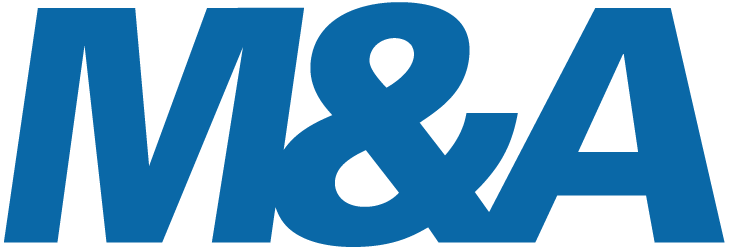Pitch Best Small Cap Deal 2020: Trigano – Gimeg

Bekijk alle pitches & stem direct
| Name of the deal | Trigano acquires Gimeg |
| Date | 28 August 2020 |
| Published value | € 5 – 50 million |
| Buyer(s) | Trigano |
| Target | Gimeg Holding |
| Seller | Gimeg Group |
Involved firms and advisors
Involved firms and advisors buy side:
EY (Financial Due Diligence), CMS (Legal Advisory Corporate M&A)
Involved firms and advisors target:
N/a
Involved firms and advisors sell side:
PhiDelphi Corporate Finance (M&A Advisory), Deloitte ( Financial Due Diligence), Amstone Tax Lawyers (Tax Advisory), Wijn & Stael (Legal Advisory Corporate M&A)
Pitch
Brief description deal / Deal outline
French recreational vehicles producer Trigano has acquired a majority stake in Gimeg, a Dutch wholesaler in the camping and leisure market. The acquisition by Trigano allows Gimeg to further strengthen its market position in Europe.
Gimeg is an importer and wholesaler in the camping and leisure market as well as the indoor and outdoor fireplaces market. Gimeg has strong own brands in the camping and leisure market providing Gimeg with a unique market position. In addition to its own brands, Gimeg has several exclusive brands such as Truma, Westfield, Milenco and wholesale brands in its portfolio. With these, a full product range is offered to camping specialist shops, DIY chains, garden centers and online retailers. Gimeg employs 50 employees and achieved a turnover of EUR 35 million in 2019.
Trigano is the largest producer of recreational vehicles in Europe. Based in Paris and operating all over Europe, the company has been listed on Euronext Paris since 1998 and has a market cap of over EUR 2 billion. In 2018-2019, Trigano realized a turnover of EUR 2.3 billion with a profit of EUR 83 million. The company has more than 8,700 employees.
After Trigano was approached by Trigano, Gimeg was sold in a tailor-made one-on-one process to Trigano. Despite challenging circumstances such as a sale to a direct competitor and Covid-19 affecting both seller and buyer, the long-term strategic fit and rationale fostered both parties to make this deal happen.
Why should this deal win the Award for Best Small Cap Deal 2020?
Key reasons for us to nominate the Gimeg-Trigano deal include:
1) The unique tailor-made one-on-one process that made the difference
2) The impact of Corona disrupting the sales process.
1) The unique tailor-made one-on-one process that made the difference
Over the past years, Trigano had reached out to the shareholders of Gimeg several times to discuss a potential partnership. As Trigano is active in the Netherlands and in direct competition with Gimeg with its subsidiary OCS BV, the shareholders of Gimeg were cautious to sharing sensitive information and expressing their willingness to investigate a potential sale. In the summer of 2019, the shareholders of Gimeg decided the time was right to start negotiations with Trigano. PhiDelphi was engaged as M&A advisor and Wijn & Stael as legal advisor.
PhiDelphi developed a tailor-made process approach for the sale of Gimeg in a one-on-one process to Trigano. Key elements of the developed approach related to sell-side advisors not being visible to buyers in the first phase of the process and to multiple signed term sheets to create strong anchor points and avoid price reduction during the process. As a result of the process, Gimeg maintained a fairly strong negotiation position versus a much larger counterparty in a one-on-one process.
1.1) No visible role for sell-side advisors in first phase
A key signal of a seller to indicate its willingness to investigate a potential transaction is hiring advisors, as this communicates the mental decision to sell the company. In a one-on-one process it is key to keep the alternative not to sell the company alive to maintain a negotiation position, as pressure from other buyers is missing. Hiring advisors makes the alternative not to sell the company less credible.
To avoid signalling a willingness of the shareholders of Gimeg to seriously investigate a transaction with Trigano, PhiDelphi and Wijn & Stael had zero visible role towards the buyer in the first phase of the process, despite their significant preparatory roles. Gimeg’s shareholders communicated that only if Trigano’s offer was in an acceptable range, they would enter a process. As a result, Trigano was forced to submit an attractive offer to tempt and persuade the shareholders of Gimeg to enter discussions.
Trigano and Gimeg reached agreement on the enterprise value and signed a preliminary term sheet to solidify and formalize the agreement. After signing off this first term sheet, Gimeg introduced her advisors to Trigano.
1.2) Multiple term sheets to create strong anchor points and avoid price reduction during the process
In the first phase of a one-on-one process with a competitor as buyer, the seller faces the risks of sharing sensitive information without knowing anything about the price the buyer has in mind. In the second phase, the seller faces the risk of price pressure as to the buyer it appears the seller has no alternative.
To avoid the issue of sharing sensitive information with a competitor, Gimeg only shared generic historic financials and a high-level multiyear forecast with Trigano. This information formed the basis for the negotiations leading to the preliminary term sheet which included an appropriate enterprise value. Without sharing sensitive information, Trigano revealed the price it had in mind, taking into account that Trigano had to “tempt” the shareholders of Gimeg into a process.
To avoid price pressure during the due diligence, an intermediate project phase was launched. In this phase, a vendor assistance report prepared by Deloitte and an elaborate information memorandum prepared by PhiDelphi were shared with Trigano. Trigano was asked to reconfirm the key transaction conditions and to agree on transaction structure topics such as governance structure, minority protection, future roles of the current shareholders of Gimeg and exclusivity rights. This resulted in the signing of an updated term Sheet.
In the final phase, confirmatory due diligence was conducted by CMS (legal) and EY (financial). No significant changes in the final documentation were made as parties agreed on the key topics already twice. The deal was signed and closed in July.
2) The impact of Corona disrupting the sales process
Following the Covid-19 pandemic, the lockdown in France and the ‘intelligent lockdown’ in the Netherlands, weekly turnover of Gimeg dropped dramatically. Also in France, management of Trigano had to free-up time to implement organizational measures to ensure a safe working environment for its employees. Trigano’s share price dropped from EUR 99.90 per share on January 15 to a four-year low of EUR 43.18 on March 18. Parties decided to pause the project for an undefined period.
About four weeks after the start of the lockdown, turnover of Gimeg started to increase again as it became clear that many people wanted to go on holiday locally or regionally fostering the demand for (luxurious) camping accessories. Furthermore, as the implementation of organizational measures were completed, management of Trigano and Gimeg shareholders were ready to continue their discussions.
By the end of May, parties picked up the process and signed the updated term sheet in which the terms of the preliminary term sheet were re-confirmed and additional terms were agreed upon.
Conclusion
With the tailor-made process approach all sellers’ objectives were realized, including obtaining maximum proceeds, protecting the seller against sharing sensitive information with a large, international competitor, and minimizing downward price pressure during the process. Achieving all this in a time where Covid-19 severely impacted both Trigano and Gimeg businesses, makes the divestment of the majority of the shares of Gimeg to Trigano the right winner for Mena’s Best Deal Small-Cap 2020 Award!
Deal rationale
The shareholders of Gimeg recognized that in upcoming years Gimeg had to cooperate with a strong international partner. Gimeg had developed its own brands and successfully introduced these in the Dutch market. To further benefit from this investment and capabilities, Gimeg needed to expand internationally. Partnering with a large international strategic player was the fastest and most effective way to realize this.
For Trigano, differentiating her product offering was the key transaction rationale. Traditionally, Trigano is a manufacturer of recreational vehicles. The company pursued a successful European buy and build strategy in the past years. New acquisitions in this segment are difficult given the sheer size of Trigano in the European market. Camping equipment forms an interesting and logical product diversification, and Trigano had already made a first step with various smaller companies operating in Europe. To speed up the development of proprietary brands and to enlarge its presence in North-West Europe, Trigano identified Gimeg as a key acquisition target.
What is the impact of this deal for the company?
By partnering with Trigano, Gimeg will be able to grow internationally with its own developed brands. Today, Gimeg successfully introduced her brands in the Netherlands. Following the transaction, the increase in scale will enable developments in new brands and will also enable further leveraging the unique skills of Gimeg’s employees in developing products for the leisure market. Gimeg expects to expand to over 10 new European countries.
What is the impact of this deal for the direct stakeholders?
Norbert Diederik, majority shareholder of Gimeg Group, will become strategic advisor to Gimeg and Trigano for the development of own product ranges and brands and will be able to leverage his extensive experience. Besides, Mr Diederik migrated towards another operational role.
Frank Gijsberts, CEO of Gimeg, will remain CEO of Gimeg following the acquisition of Gimeg Holding. He will be able to lead the international growth of Gimeg together with the management team and other employees of Gimeg.
With this acquisition, Trigano proves its buy and build capabilities in new product segments. Trigano also enlarges its product portfolio, obtains its own brands in the camping equipment space, and will be able to increase her “share of wallet” at her clients.
What is the impact of this deal on society?
With the Gimeg brands, even more consumers will be able to get access to the unique products of Gimeg enlightening their lives during their holidays and at home. Especially in times of Covid-19, Gimeg enables users of their products to optimally enjoy a “staycation” in lockdown periods.
What was most complex about this deal?
As a sell-side advisor, the most complex part was the formulation of the tailored-made one-on-one process. The position of the seller in a one-on-one process is difficult as competition is not available. This makes it hard for the seller to ‘drive the process’, and to realize attractive deal conditions from leveraging its strong negotiation position. Finally, the company size of Gimeg compared to Trigano is a bit like David and Goliath, making an effective process crucial. PhiDelphi has developed a tailor-made process approach which effectively dealt with these complexities.









